Results
-
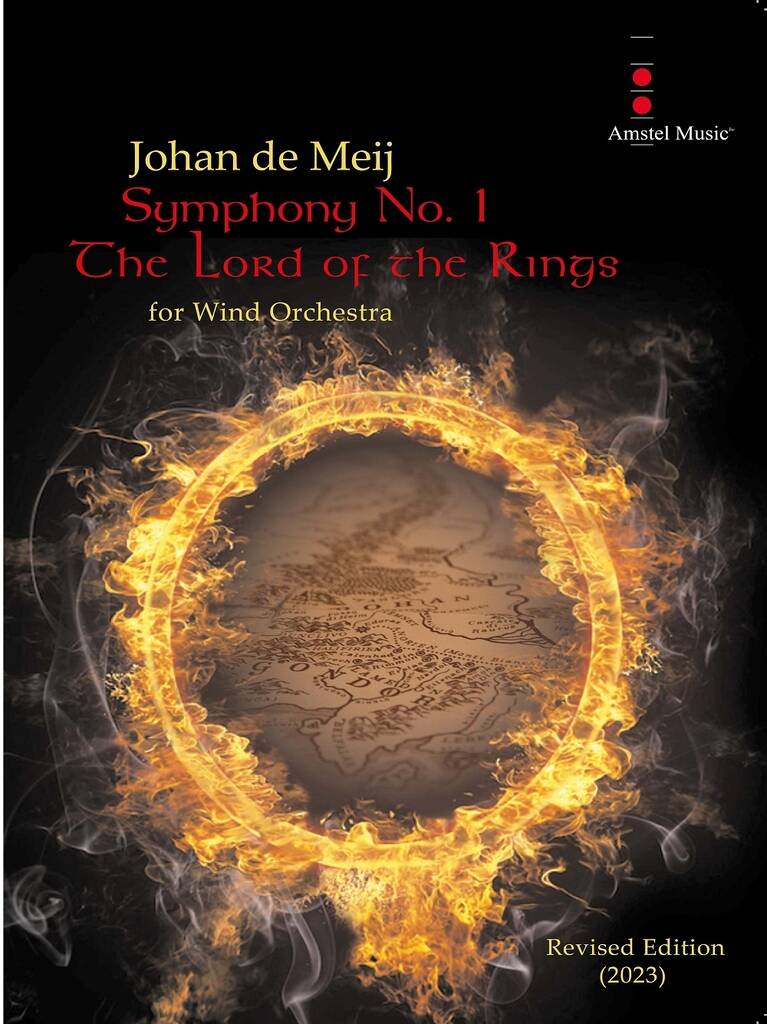 £514.99
£514.99Symphony No. 1 The Lord of the Rings (complete ed) - Johan de Meij
Johan de Meij's first symphony The Lord of the Rings is based on the trilogy of that name by J.R.R. Tolkien. This book has fascinated many millions of readers since its publication in 1955. The symphony consists of five separate movements, each illustrating a personage or an important episode from the book. The movements are: I. GANDALF (The Wizard) II. LOTHLORIEN (The Elvenwood) III. GOLLUM (Smagol) IV. JOURNEY IN THE DARK a. The Mines of Moria b. The Bridge of Khazad-Dm V. HOBBITS The symphony was written in the period between March 1984 and December 1987, and had its premire in Brussels on 15th March 1988, performed by The Royal Band of the Belgian Guides under the baton of Norbert Nozy. In 1989, the Symphony The Lord of the Rings was awarded first prize in the Sudler International Composition Competition in Chicago. In 2001, the orchestral version was premiered by the Rotterdam Philharmonic Orchestra and was recorded by the London Symphony Orchestra.
Estimated dispatch 7-14 working days
-
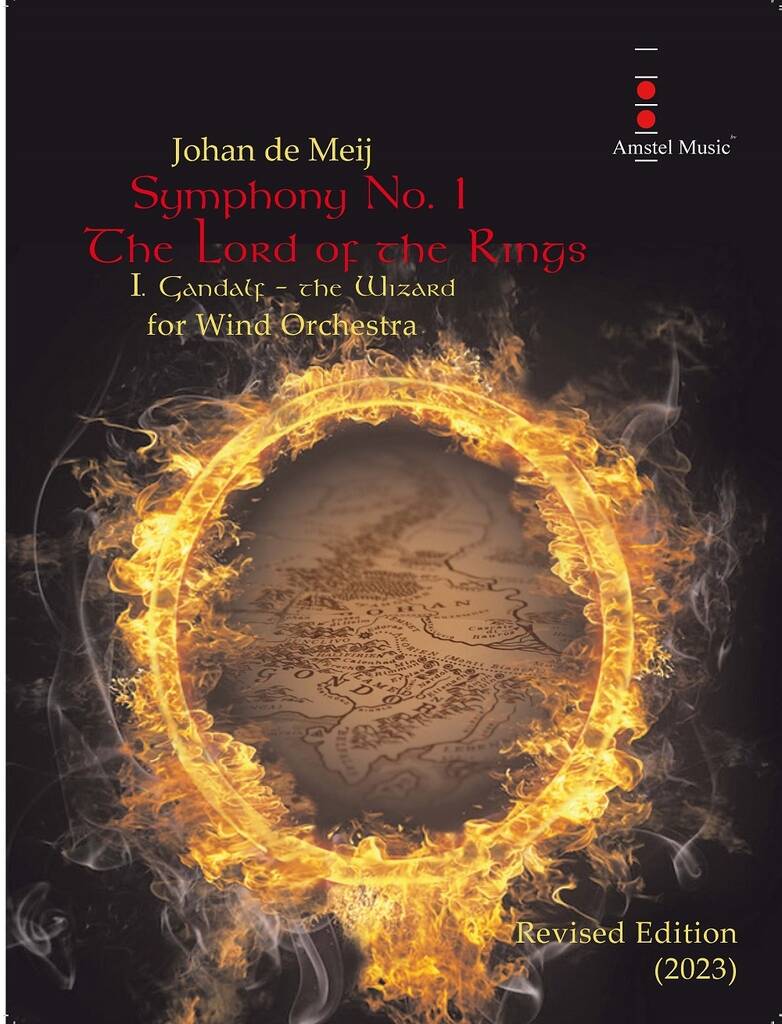 £134.99
£134.99Gandalf the Wizard (from The Lord of the Rings) - Johan de Meij
Johan de Meij's first symphony The Lord of the Rings is based on the trilogy of that name by J.R.R. Tolkien. This book has fascinated many millions of readers since its publication in 1955. The symphony consists of five separate movements, each illustrating a personage or an important episode from the book. The movements are: I. GANDALF (The Wizard) II. LOTHLORIEN (The Elvenwood) III. GOLLUM (Smagol) IV. JOURNEY IN THE DARK a. The Mines of Moria b. The Bridge of Khazad-Dm V. HOBBITS The symphony was written in the period between March 1984 and December 1987, and had its premire in Brussels on 15th March 1988, performed by The Royal Band of the Belgian Guides under the baton of Norbert Nozy. In 1989, the Symphony The Lord of the Rings was awarded first prize in the Sudler International Composition Competition in Chicago. In 2001, the orchestral version was premiered by the Rotterdam Philharmonic Orchestra and was recorded by the London Symphony Orchestra.
Estimated dispatch 7-14 working days
-
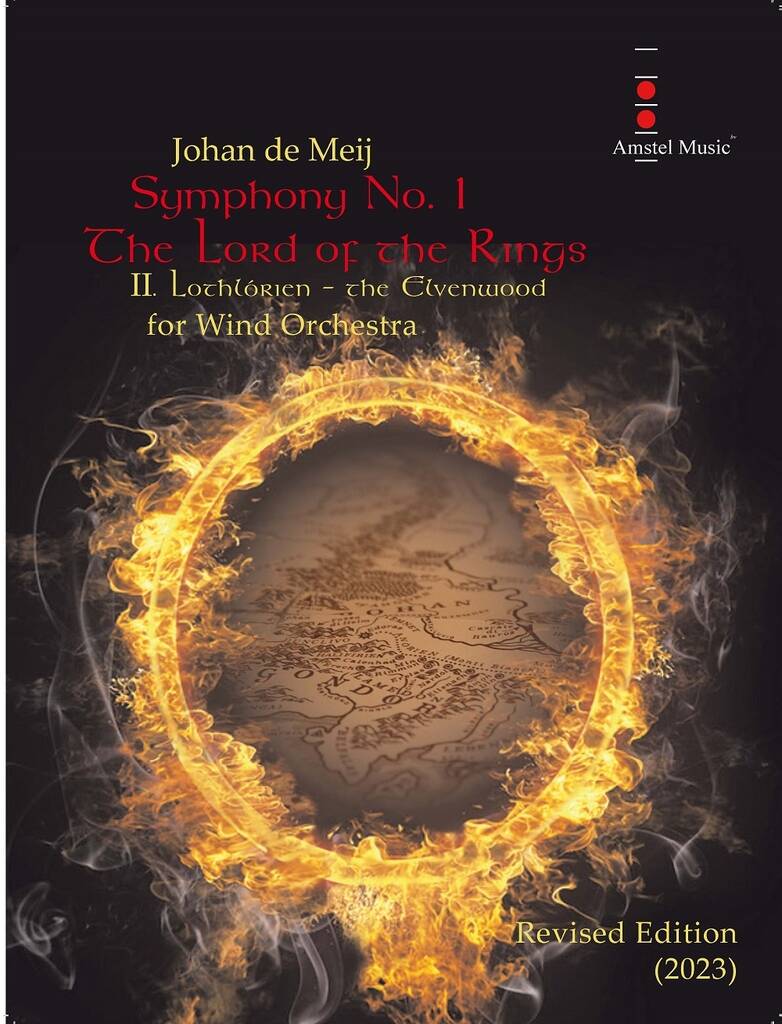 £134.99
£134.99Lothlrien (from The Lord of the Rings) - Johan de Meij
Johan de Meij's first symphony The Lord of the Rings is based on the trilogy of that name by J.R.R. Tolkien. This book has fascinated many millions of readers since its publication in 1955. The symphony consists of five separate movements, each illustrating a personage or an important episode from the book. The movements are: I. GANDALF (The Wizard) II. LOTHLORIEN (The Elvenwood) III. GOLLUM (Smagol) IV. JOURNEY IN THE DARK a. The Mines of Moria b. The Bridge of Khazad-Dm V. HOBBITS The symphony was written in the period between March 1984 and December 1987, and had its premire in Brussels on 15th March 1988, performed by The Royal Band of the Belgian Guides under the baton of Norbert Nozy. In 1989, the Symphony The Lord of the Rings was awarded first prize in the Sudler International Composition Competition in Chicago. In 2001, the orchestral version was premiered by the Rotterdam Philharmonic Orchestra and was recorded by the London Symphony Orchestra.
Estimated dispatch 7-14 working days
-
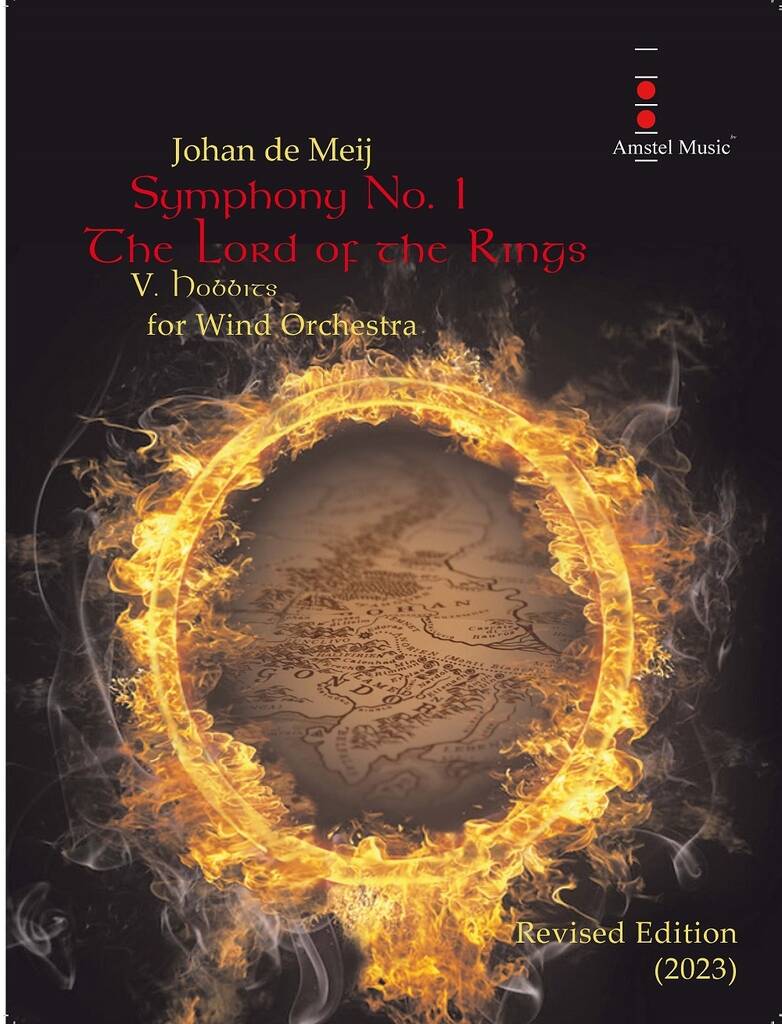 £134.99
£134.99Hobbits (from The Lord of the Rings) - Johan de Meij
Johan de Meij's first symphony The Lord of the Rings is based on the trilogy of that name by J.R.R. Tolkien. This book has fascinated many millions of readers since its publication in 1955. The symphony consists of five separate movements, each illustrating a personage or an important episode from the book. The movements are: I. GANDALF (The Wizard) II. LOTHLORIEN (The Elvenwood) III. GOLLUM (Smagol) IV. JOURNEY IN THE DARK a. The Mines of Moria b. The Bridge of Khazad-Dm V. HOBBITS The symphony was written in the period between March 1984 and December 1987, and had its premire in Brussels on 15th March 1988, performed by The Royal Band of the Belgian Guides under the baton of Norbert Nozy. In 1989, the Symphony The Lord of the Rings was awarded first prize in the Sudler International Composition Competition in Chicago. In 2001, the orchestral version was premiered by the Rotterdam Philharmonic Orchestra and was recorded by the London Symphony Orchestra.
Estimated dispatch 7-14 working days
-
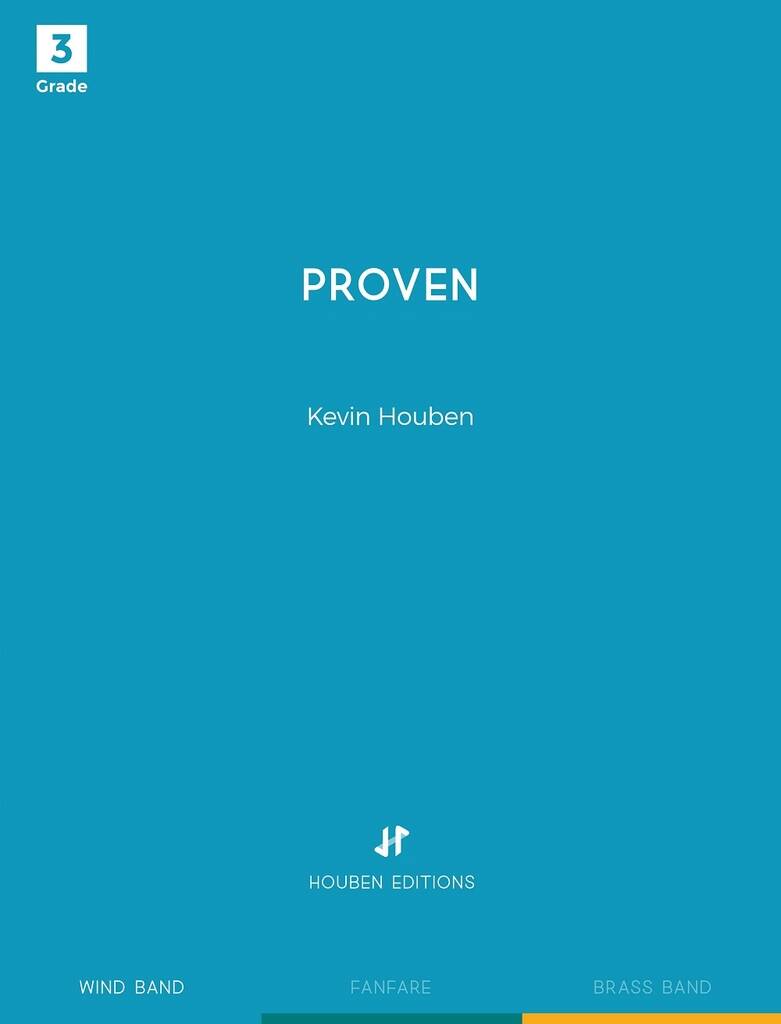 £97.60
£97.60Proven - Kevin Houben
'Proven' was composed by Kevin Houben on the occasion of the 100th anniversary of the Royal Wind Band 'De Volksvreugd'meaning ' People's Joy' in 2021.As its name suggests the musical band of the West Flemish village , municipality of Poperinge (B), had to bring joy againto the people. At that time there was still a striking industry of woodworkers, including that of slat splitters and hoop cutters.Moreover the cultivation of hops, necessary for the brewing of beer, remained important. Shortly after World War I theassociation was founded in the cellars of the brewer- mayor.Soon the joy was not only experienced by its listeners but also by its members. Already from its foundation onwards, thecandidate musicians flocked in and still nowadays 'De Volksvreugd' can take pride in having more than 100 members in itsyouth orchestra, having a drum band, an ambiance band and a wind band. Participation in tattoo and competitions ensuresan excellent musical level. Moreover musicians of all ages feel like family. For the previous 100 years 'De Volksvreugd' has'proven' to bring joy to the people and by the people. The chant 'Long live the Volksvreugd/ People's Joy' clearly provesits popularity.This energetic and festive composition has a very recognizable and powerful introduction, after which each musician ischallenged concerning technique, rhythm and ensemble playing. Also the magnificent melodic part, which Houben iswell-known for, is very melodious and intimate followed by a lyrical highlight to culminate into an energetic and rhythmicalfinal. Ideal for any concert!
Estimated dispatch 7-14 working days
-
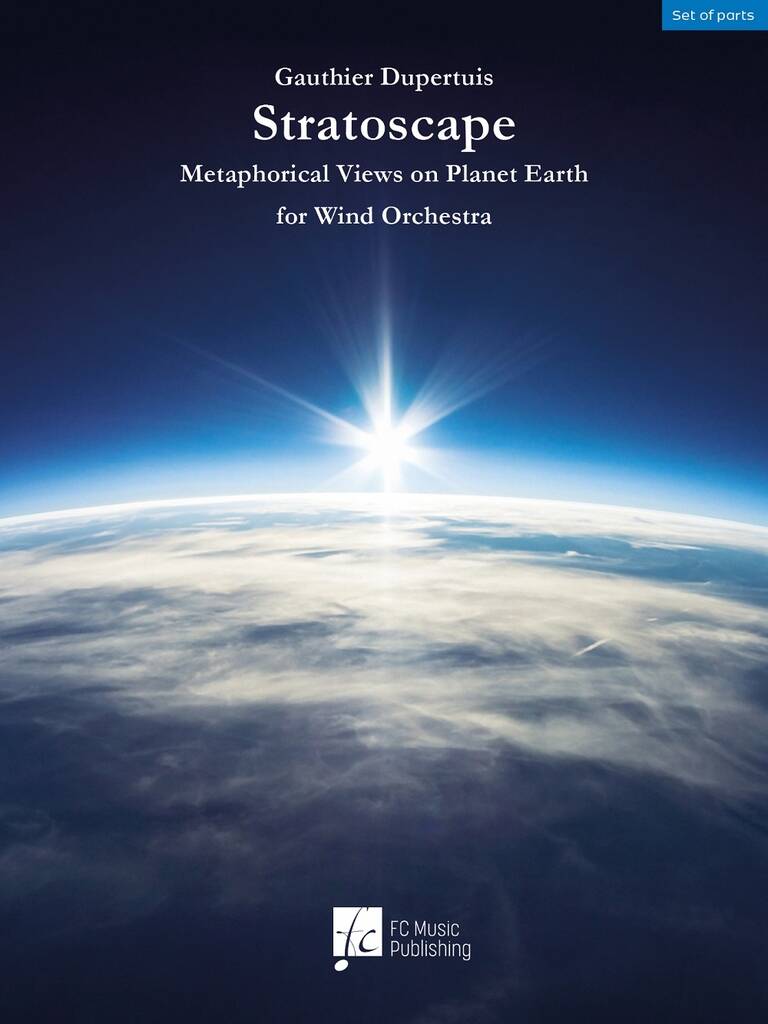 £244.00
£244.00Stratoscape - Gauthier Dupertuis
Stratoscape, by Swiss composer Gauthier Dupertuis, is a colorful and contrasting work for wind orchestra, depicting the view of our earth as seen from the stratosphere. This voyage into the sky is pictural, but also metaphorical, as it is also about distancing from our world. br>The work is divided into five sections:I Ignition!, II Broadness & The Big Blue, III Stars Shining from Down to Above, IV Destructive Forces, V One and Only HomeFive contrasting movements, starting with Ignition in which Gauthier Dupertuis tries to musically convey the majesty of our planet seeing if from the atmosphere, ending with One and Only Hope, as the title say, a message of hope. In between three movements that depict the broadness of the landscapes of our planet (second movement), the fragility of our earth at night with only the stars shining (third movement). But also sheer reality in the fourth movement when the composer translates into music the damage caused to our planet by us human beings. Stratoscape: a fantastic view of Planet Earth!
Estimated dispatch 7-14 working days
-
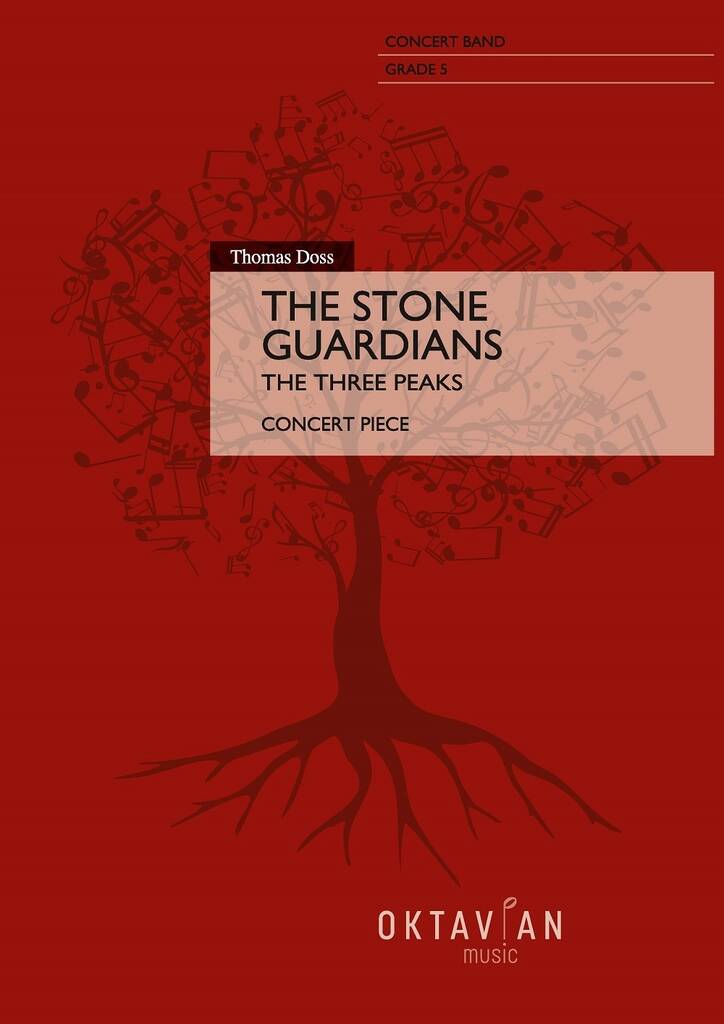 £242.99
£242.99The Stone Guardians - Thomas Doss
The Three Peaks (Italian: Tre Cime di Lavaredo) are a prominent massif in the Dolomites on the border between the Italian provinces of Belluno in the south and South Tyrol in the north.The imposing rock formations formed over 200 million years ago and represent one of the most recognizable landmarks of the Dolomites and South Tyrol (I).Due to their exceptional beauty, the Dolomites with the Three Peaks are dignified as a UNESCO World Heritage Site since 2009.The 'call' of the Three Peaks attracts numerous visitors every year, who will experience an unforgettable and impressive spectacle of changing colors from cool gray to glowing red.The Three Peaks tower over the eventful contemporary history of Tyrol and South Tyrol like stone guardians.
Estimated dispatch 7-14 working days
-
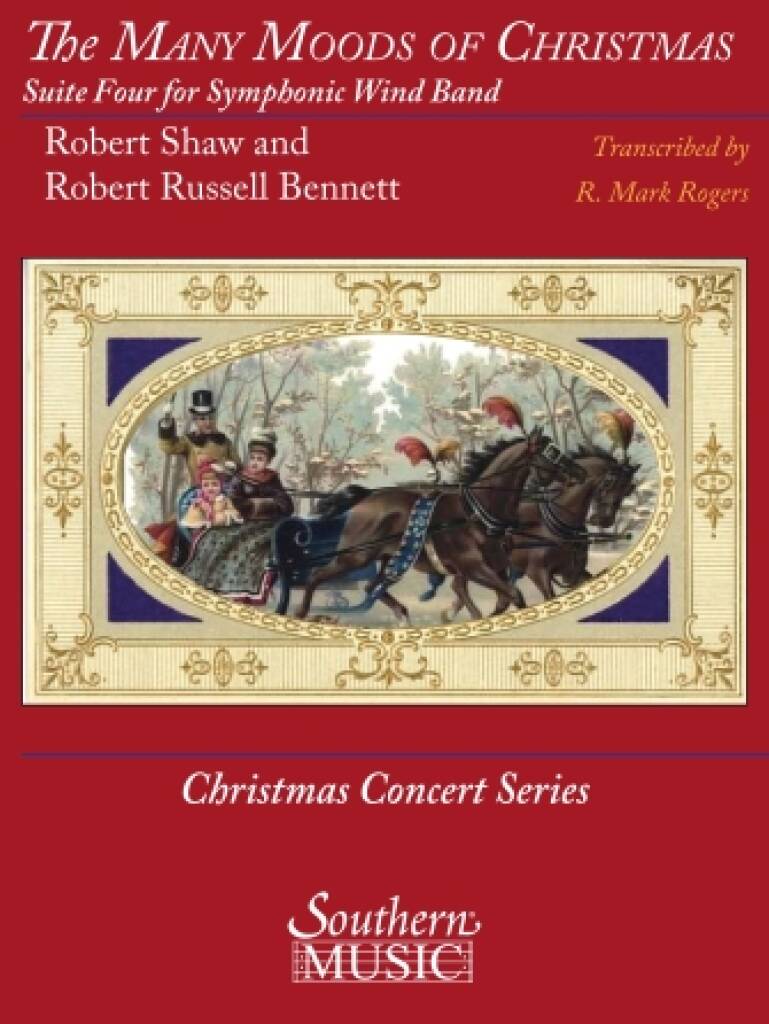 £104.99
£104.99The Many Moods of Christmas: Suite No. 4 - Robert Shaw
The extensive passages for orchestra alone in The Many Moods of Christmas suites represent some of Robert Russell Bennett's most brilliant and attractive writing based on familiar carols. This Mark Rogers' edition for wind band alone is the second offering in an ongoing series which will bring all four of these suites to the repertory of band conductors in the coming years. Included are Break Forth, O Beauteous Heavenly Light, The First Nowell, O Little Town of Bethlehem, I Saw Three Ships, and concludes with a rousing version of Deck the Halls with Boughs of Holly.
Estimated dispatch 7-14 working days
-
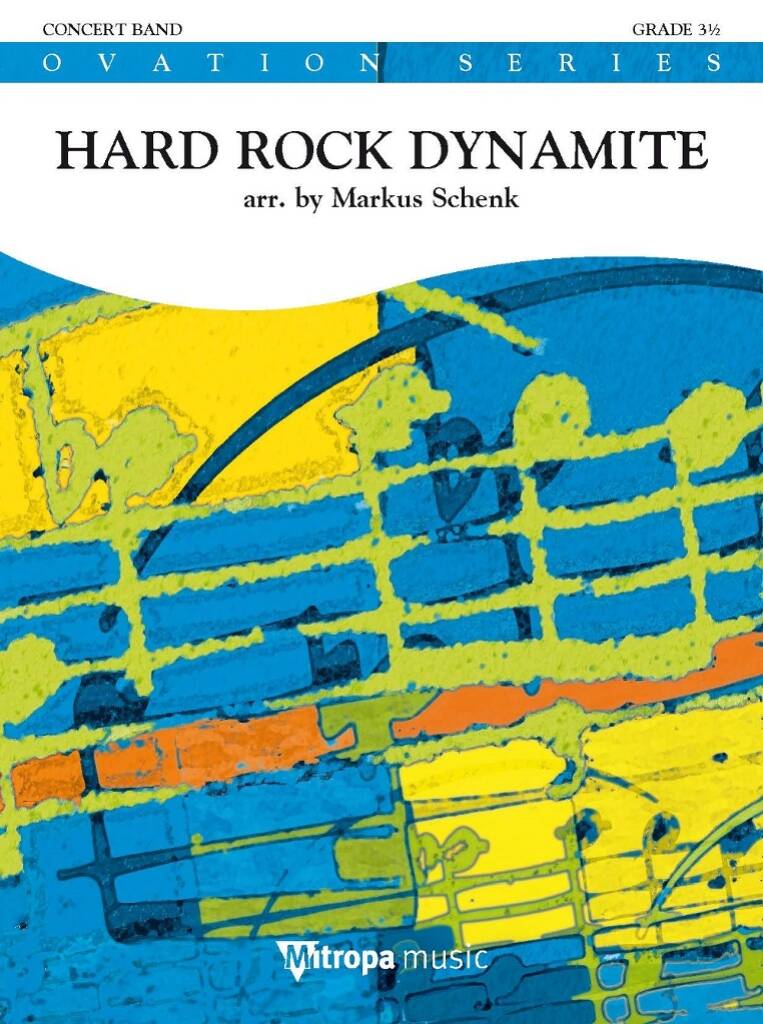 £104.99
£104.99Hard Rock Dynamite
Do you like rock guitars and a nice heavy beat on the drums? If so, this medley is what you are looking for! It features four fearsome solid gold rock hits: 'Walk This Way' (Aerosmith), 'Come As You Are' (Nirvana), 'I Was Made For Lovin' You' (Kiss) and 'Seven Nation Army' (The White Stripes). Not for the faint-hearted!
Estimated dispatch 7-14 working days
-
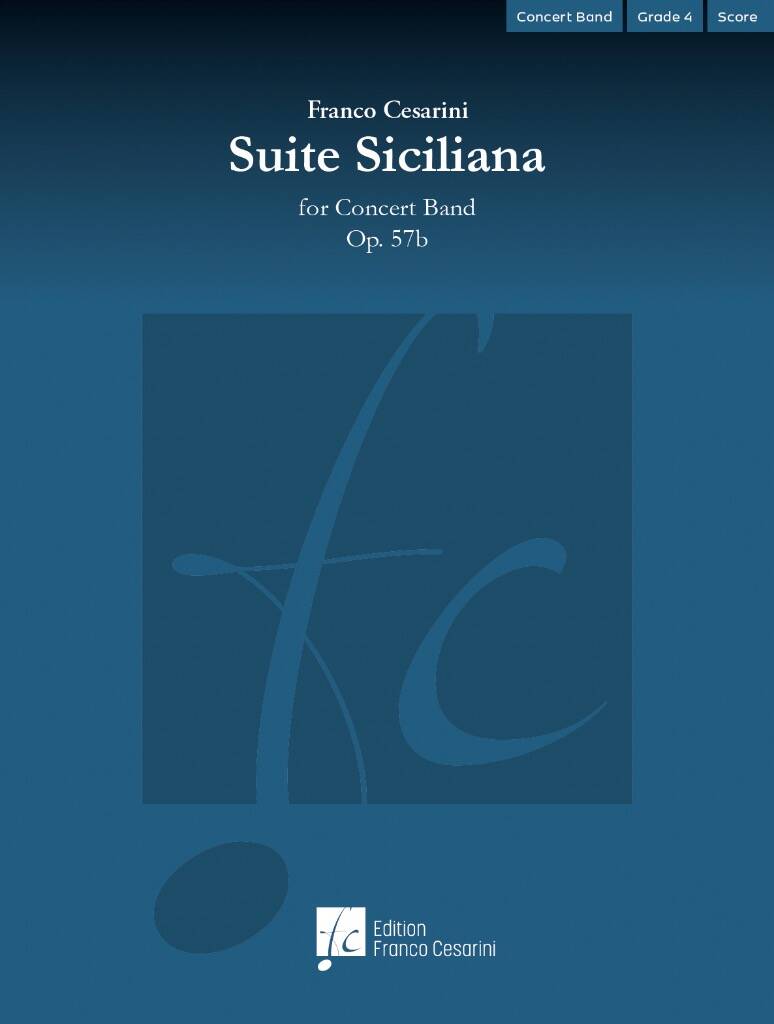 £163.00
£163.00Suite Siciliana, Op. 57b - Franco Cesarini
Franco Cesarini has written this piece for concert band as a tribute to the town of Bisacquino (Palermo, Italy) of which he is an honorary citizen.TheSuite Siciliana, a 7-movement piece - Intrada, Pavana I>, Gavotta, Barcarola, Tambourin, Siciliana, Tarantella - is characterised by contrasting rhythms and tempo, and consists of these 7 dances. The musical form, typical of the Baroque period, refers to some traditional expressions of art from the land of Sicily: ranging from the rich architecture of the Sicilian Baroque to the colorful majolica ceramics and the characteristic puppets, the "pupi", which narrate a secular tradition.A full immersion into ancient traditions of this beautiful island!
Estimated dispatch 7-14 working days
